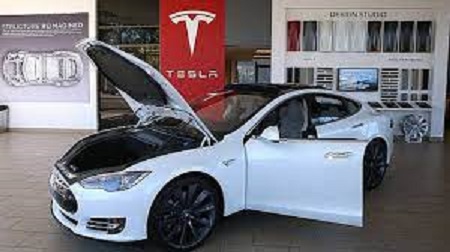Tesla, the leading electric vehicle manufacturer globally, has encountered a substantial blow to its reputation following a recall of more than two million vehicles, marking its fourth recall in less than two years. The recall, prompted by pressure from regulators, is the most significant to date and covers nearly all Tesla cars produced in the United States since 2012, including its popular Model Y SUV.
U.S. officials asserted that Tesla had not taken sufficient measures to ensure driver attentiveness when utilizing its Autopilot system, designed to steer, accelerate, and brake vehicles automatically. The National Highway Traffic Safety Administration (NHTSA) initiated an investigation into Tesla’s driver-assistance system, Autopilot, in August 2021 after several accidents, including some fatal incidents, linked to the technology. Autopilot is intended to control vehicles autonomously on highways, with Tesla’s manuals instructing drivers to keep their hands on the wheel and take control if needed.
Regulators expressed concerns that Tesla had not done enough to prevent drivers from misusing the system, such as activating it on local roads or becoming distracted, assuming their vehicle could drive itself. The recall raises questions about the company’s commitment to safety and adds to the series of challenges faced by Tesla, including recent controversial statements by CEO Elon Musk.
While Tesla remains a dominant force, accounting for approximately half of electric passenger cars sold in the United States, its market share has been slipping as other automakers like General Motors, Hyundai, and Ford Motor have introduced electric models. The recall negatively impacts Tesla’s image at a time when the electric vehicle market is becoming increasingly competitive.
The focus of the NHTSA investigation was on Tesla’s Autosteer, a feature within the Autopilot system that enables a vehicle to stay in its lane without driver intervention. The safety administration noted an “increased risk of a crash” when Autosteer is engaged, and drivers fail to “maintain responsibility for vehicle operation.” To address this issue, Tesla committed to wirelessly updating its cars with new, more prominent visual alerts and checks when Autosteer is engaged, reminding drivers to keep their hands on the wheel and stay attentive.
While Tesla disagreed with the NHTSA’s assessment of the system, maintaining that Autopilot enhances vehicle safety, the recall has become a significant dent in the company’s reputation. The incident highlights the need for manufacturers to prevent foreseeable misuse of advanced technologies, with Transportation Secretary Pete Buttigieg emphasizing that even if a technology enhances safety, the responsibility lies with manufacturers to ensure its proper use.
Critics argue that Autopilot’s safety improvements are mainly derived from automatic emergency braking, a common feature in new vehicles, and question whether Autopilot genuinely enhances overall safety. The recall underscores the wider push and pull between regulators and companies developing autonomous driving technologies. Regulators are increasingly scrutinizing companies’ claims and practices to ensure the safe deployment of self-driving technologies.
The recall is the latest challenge for Tesla, following previous recalls related to acceleration and braking systems and issues with its Full Self Driving driver-assistance system. The company has faced litigation and controversies over the safety and effectiveness of its autonomous driving technologies. The details of Tesla’s response to the NHTSA recall and its impact on the company’s future developments remain subject to ongoing discussions and regulatory oversight.

